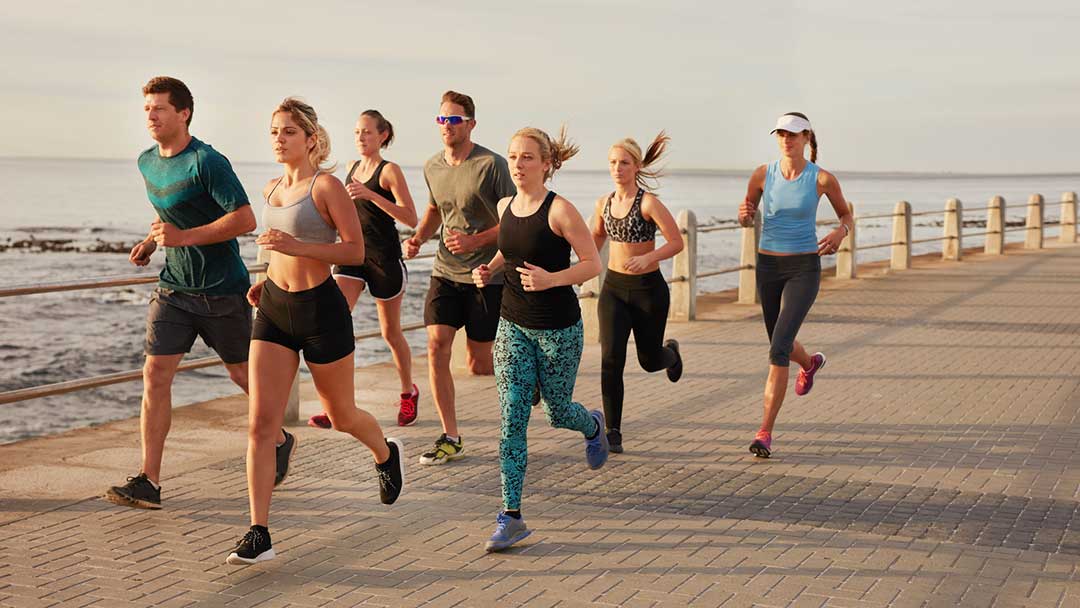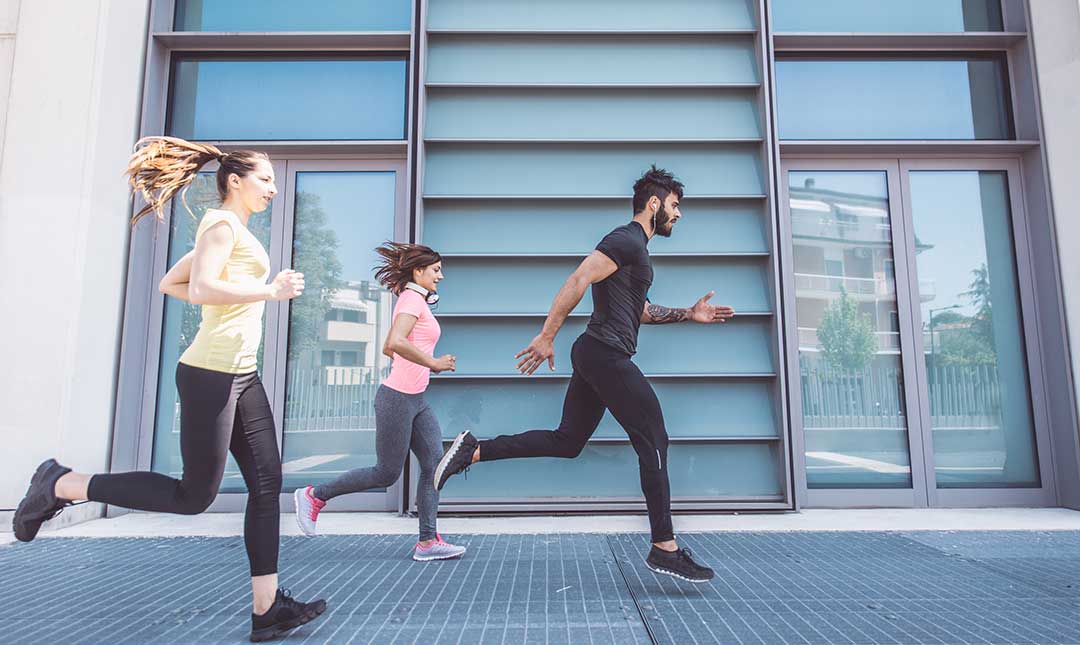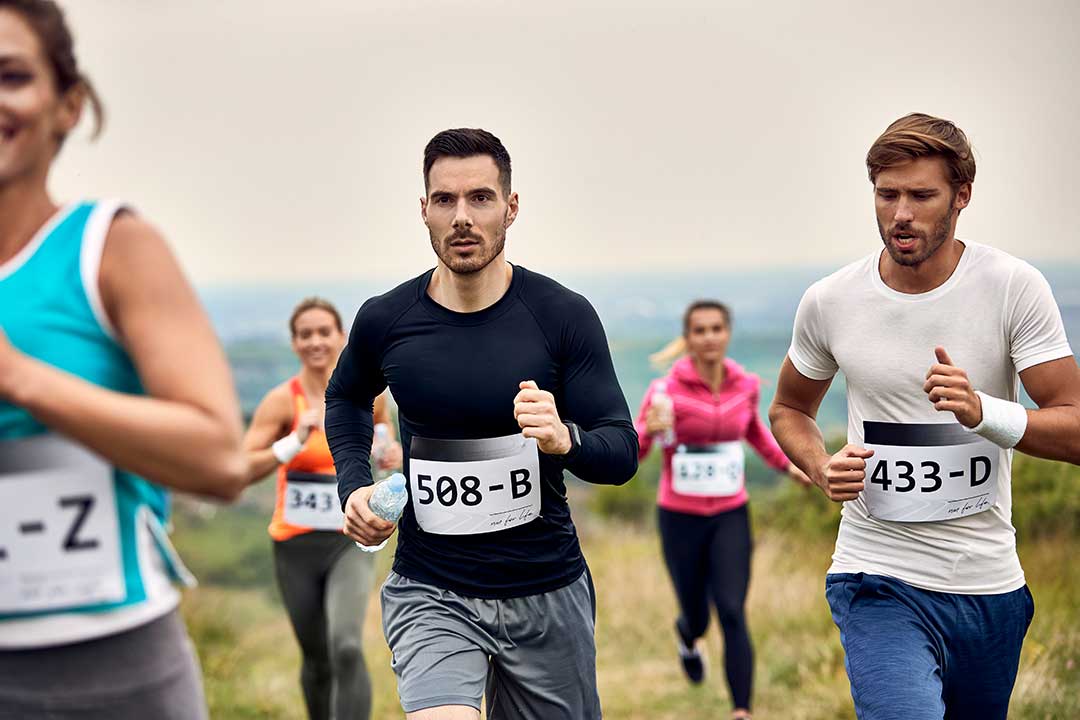Determining your pre-marathon meal can significantly impact your race outcome because consuming food that is still being digested during the race can lead to stomach discomfort, and gastrointestinal issues, and deprive your body of essential energy reserves.
On the other hand, selecting the right fuel can provide your body with the necessary energy to cover the 26.2 miles, especially when glycogen stores start depleting after the first 10k.
Consuming sufficient fuel is crucial, but overeating can leave your stomach working overtime at the starting line.
Let's get to know the best food to eat when training for a marathon to achieve our best performance during the race and finish it with a bang.
As always, safety comes first. Please consult a health professional before undergoing any training and changes in your overall diet so that you reap the many health benefits training and running give.
What To Eat for Breakfast Before a Marathon To Have Enough Fuel

Choosing the optimal breakfast before your marathon can be the key to extending your endurance—specifically, that crucial extra 6.2 miles. Experienced marathoners understand that the true test begins in the final 10 kilometers.
During this phase, our bodies start to exhaust their fuel reserves and rely heavily on determination.
However, your breakfast selection can prevent you from hitting the dreaded "bonk" (when energy levels plummet). Consider your pre-race meal as the fuel for those last 10 kilometers. The longer you can maintain your muscle and liver glycogen stores, the more energy you'll have for the final stretch. Why? Our bodies can store only around 300 grams of glycogen, which fuels us for approximately 1.5 hours.
Beyond that point, runners often hit a wall due to depleted glucose levels. Race nutrition aims to conserve glycogen stores and utilize them at a slower rate. Your pre-race meal postpones the depletion of muscle glycogen. Many runners who experience a bonk typically didn't consume enough fuel early on, either through a substantial breakfast or refueling during the first half of the race. Think of your fuel reserves as a leaky bucket throughout the marathon. Your task is to ensure it's brimming at the starting line and regularly replenished during the run to prevent depletion.
This underscores the importance of pre-marathon nutrition—effectively filling that bucket is paramount.
Eat a meal at least two hours before a race. Ideally, you should have your breakfast three to four hours before a marathon, followed by a snack an hour before. This timing ensures that carbohydrates are properly digested and readily available in your bloodstream when the race begins.
While the ideal macronutrient ratio is 4:1 (carbohydrates to protein), an approximation suffices.
Go for easily digestible foods that swiftly convert into usable energy, such as low-residue carbohydrates, like white rice, bread, bagels, energy bars, or low-fiber cereals on the morning of your marathon.
Long-term nutrition plans typically emphasize a variety of nutrient-rich meals. Some of the best foods to eat when training for a marathon, include vegetables, healthy fats, and whole grains, like quinoa, sweet potatoes, and nut butter—just not on race day.
During the race, prioritize maintaining energy levels with easily digestible carbohydrates until you cross the finish line. Remember, more food isn't necessarily better as excessive intake can prolong digestion and lead to gastrointestinal issues. Aim for around 100 grams of carbohydrate intake along with some protein.
Save adventurous meals for the day after the race. You'll have earned the freedom to indulge by then.
If you typically enjoy coffee in the morning, feel free to indulge before your race.
Coffee is indeed a performance enhancer. Research indicates that caffeine can provide runners with an extra boost. However, if you're not accustomed to consuming coffee, it's essential to test its effects on your body before race day. Some individuals may experience gastrointestinal discomfort or increased frequency of bathroom visits with coffee consumption.
Additionally, caffeine can cause rapid heart rate in some people, which is not ideal on the morning of the marathon. Alternatively, you can explore caffeinated chews or gels, which may also offer a performance boost.
What Carb Loading Does

Carb loading involves careful planning. It's more than just indulging in a pre-race pasta dinner the night before.
Carb loading is a deliberate strategy of increasing carbohydrate intake before a marathon, specifically aimed at replenishing glycogen stores in muscles and the liver.
When executed effectively, carb loading helps prevent hitting the infamous wall or experiencing "bonking" during a marathon by ensuring a continuous supply of carbohydrates, thus fending off fatigue toward the race's end.
Carbohydrates also play a vital role in maintaining proper hydration as every gram of stored glycogen is accompanied by four grams of water. This hydration factor significantly contributes to optimal race-day performance.
To properly carb load, gradually increase carbohydrate intake in the days leading up to the race, substituting fat and fiber in meals with complex carbohydrates, such as rice, legumes, and potatoes. Timing is crucial for successful marathon nutrition.
Begin carb loading three to four days before the marathon, progressively boosting carbohydrate intake while reducing fat and fiber consumption. For half marathons, a similar approach is recommended to derive 70 percent of calories from carbohydrates in the days preceding the race.
What To Eat for Dinner Before a Marathon To Have Enough Fuel
The ideal dinner the night before your marathon should feature a well-rounded combination of complex carbohydrates. Some of the good foods to eat when training for a marathon, include pasta or quinoa, lean proteins like chicken or tofu to support muscle function, and healthy fats, such as avocado, for sustained energy.
It's crucial to moderate fiber intake to prevent digestive discomfort during the race and to maintain hydration without disrupting your sleep with frequent bathroom trips.
Stick to foods that you are familiar with and that your stomach tolerates well.
Enjoy your balanced pre-marathon dinner two to three hours before bedtime to allow for adequate digestion, ensuring you wake up prepared to conquer the course with a properly fueled body.
How To Avoid an Upset Stomach When Running a Marathon

To prevent gastrointestinal discomfort during the marathon, pay attention to both the timing and content of your meals.
Your body typically requires around two hours to fully digest a meal. Therefore, it's important to plan your meals so that they are fully digested and provide energy when you begin the race.
Stomachaches often occur when eating too close to the starting time, resulting in simultaneous efforts to run and digest food.
As we start running, the working muscles draw blood away from the digestive system, potentially leading to gastrointestinal problems if there's undigested food remaining in the stomach.
The objective of your breakfast before a marathon is to optimize carbohydrate intake while minimizing the risk of gastrointestinal discomfort. Eating breakfast more than two hours before the race can help prevent stomach issues during the event. It's important to avoid high-fat and high-fiber foods, which can delay stomach emptying and lead to gastrointestinal distress.
Additionally, refrain from consuming new foods on race day. If you want to try something new, test it before the event. Overeating should also be avoided as it may result in ongoing digestion during the race. If eating on race morning is challenging, consider having a carbohydrate snack the night before to ensure your glycogen stores are adequately replenished.
Steer clear of foods that are challenging to digest, particularly those high in fiber, which can lead to bloating and gas. Running stimulates the gastrointestinal tract, and fiber intake can exacerbate these issues.
Additionally, avoid high-fat foods and protein as they slow down digestion and energy release. Therefore, it's best to avoid foods like beans, lentils, or high-fiber cereals before your marathon. However, individual preferences play a role here. If you enjoy a bean burrito before your run, go ahead and indulge.
Remember, the longer food remains in your gut, the higher the likelihood of experiencing diarrhea, bloating, or gas—something runners definitely want to avoid.
#wemovetogether To the Finish Line
Eat well, train hard, and finish the race in style with the best running ensemble from baleaf's All Running Gear collection. Ensure you're fueled with the best foods for your marathon day to optimize your performance and achieve your goals. With proper nutrition, rigorous training, and quality gear, you'll be poised to finish the race with a bang.


